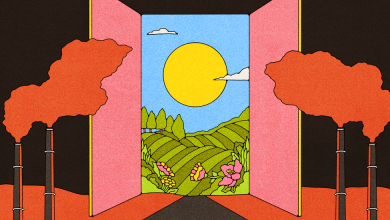The Two-State Platitude

Supported by
SKIP ADVERTISEMENT
The Two-State Platitude
-
Share full article
Video by Amanda Su and Adam Westbrook
Mr. Westbrook is a producer with Opinion Video. Ms. Su is an Opinion Video reporting fellow.
In the decades-long effort to resolve the conflict between Israelis and Palestinians, it has seemed to many like the least flawed among many imperfect ideas: the two-state solution. It would create an independent Palestinian state, made up of Gaza and the West Bank, that would exist alongside Israel. The goal has become official policy of most governments around the world and has been the basis for peace talks for years.
But as the Opinion video above shows, it has also become one of the most hollowed-out phrases in the Middle East — or anywhere. For all the shuttle diplomacy, summits and on-the-verge-of-success pronouncements, the goal remains frustratingly distant and, for many, dead.
That said, some faith in the idea somehow persists, even amid the worst fighting in the history of the conflict. In recent days, President Biden and his counterparts in Britain, France and elsewhere have newly championed the two-state solution as the best path toward peace. In the coming weeks and months, absent a more viable alternative, we’ll most likely be hearing the phrase again and again — and again.
Amanda Su (@amandaysu) is an Opinion Video reporting fellow. Adam Westbrook is a producer and editor with Opinion Video.
The Times is committed to publishing a diversity of letters to the editor. We’d like to hear what you think about this or any of our articles. Here are some tips. And here’s our email: [email protected].
Follow The New York Times Opinion section on Facebook, Twitter (@NYTopinion) and Instagram.




